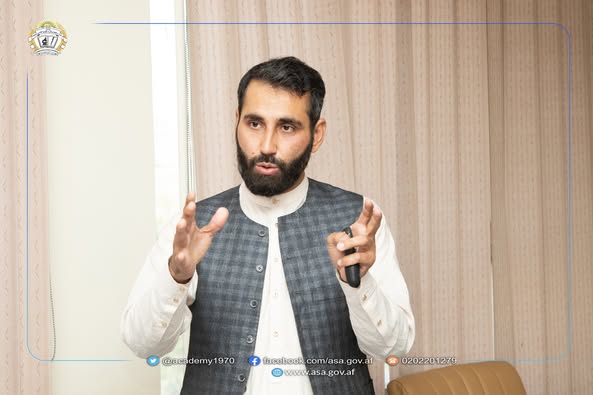Legal Challenges to the Use of Artificial Intelligence in Afghanistan

Today, on the 2025-07-12, an academic research conference was held under the title "Legal Challenges to the Use of Artificial Intelligence in Afghanistan". The event was organized within the framework of the Center for Social Sciences, under the Deputy Directorate of Humanities and Social Sciences at the Afghanistan Sciences Academy, and was presented by Assistant Professor Mr. Abdul Qahar Azizi, a researcher and academic member of the Institute of Law and Political Science.
During the conference, the researcher discussed various legal challenges and obstacles to the use of artificial intelligence in Afghanistan. Key issues addressed included the attribution of legal responsibility, violations of privacy and confidentiality, and the legal complications surrounding invention and discovery in the context of AI.
In his analysis, the researcher explored the attribution of responsibility in light of theories such as fault-intention based liability, negligence, strict liability, vicarious liability, and the recognition of legal personality for artificial intelligence. According to him, the theories of fault-intention based liability, strict liability, and vicarious liability are applicable within the Afghan legal framework. He further argued that the concept of vicarious liability is derived from Islamic jurisprudence, which allows for holding owners accountable for damages caused by AI systems.
The attribution of responsibility was examined in detail within the frameworks of international humanitarian law, intellectual property law, and medical law. Additionally, the researcher discussed the allocation of rights to invention and discovery under intellectual property regimes and provided comparative examples from other countries. He also addressed issues of privacy and confidentiality in the healthcare sector and emphasized the need for revising and formulating legal instruments to address these emerging challenges.
At the conclusion of the conference, the researcher responded to questions posed by participants, and the event was positively evaluated by the designated commission.
To view topics related to the conference in Pashto, please click the link below.
